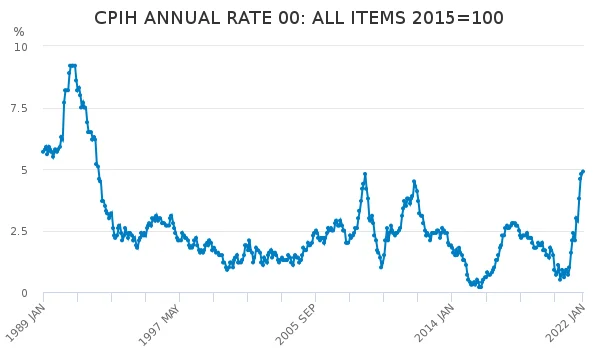UK scale-up businesses face more momentous challenges than ever before. Political and tax changes were dwarfed by the global pandemic that not only accelerated digital transformation but also reshaped the way we think about work and life. We identified the key threats to UK scale-up businesses in a post Brexit and pandemic world, and how to mitigate them.
The challenges
As many businesses come out of the pandemic on shaky feet, business leaders need to act decisively and take measured risks. This isn’t easy when new developments continue to threaten the newly perceived “normal” faster than many can adapt.
Currency fluctuations
The introduction of Brexit negatively affected the strength of the pound. After hitting its height of €1.4 Euro to £1, the strength of Great British Pound (GBP) plummeted by approximately 22% ending at €1.09 to £1 from 2015 – 2017.

This was a massive challenge for the UK scale-up business in many respects. A cheaper pound impacted the cost of conducting and setting up abroad, because the pound is less valuable when trading with the Euro. A cheaper pound means UK businesses didn’t have the same purchasing power in the EU, meaning they would have to spend more to acquire resources abroad, resulting in reduced profit margins.
A decline in the value of GBP (£) should have helped exports, in theory, because it meant that any goods exported to an EU country from a UK business would be cheaper for the importer. However, the uncertainty surrounding Brexit reduced the attractiveness of UK goods to EU customers, negatively impacting their purchase decisions.
COVID-19

UK firms faced a tiered lockdown system. This involved a mandatory closure of all non-essential companies, and the essential enterprises that could remain open had to take necessary measures to stop the spread of COVID-19. These measures included work from home and hybrid remote working. Enabling employees to continue working from home post-pandemic requires continued investment not only in resources but also in culture, which is a lot harder to build remotely, presenting a further challenge to scale-ups and businesses of almost all types.
The restrictive measures impacted the flow of communication for many enterprises. Lack of face-to-face contact in an office environment makes it harder to communicate with co-workers.
Brand communication will also be affected by these restrictions. Meet and greets with a client are still conducted online, missing out on the unique benefits of face-to-face interaction. Meeting clients in person is one of the best ways to humanise a company and create a unique experience to differentiate brands from their competitors.
The impact of continued working under pandemic rules come in two forms:
Cost
- New office equipment might have to be purchased to enable remote work indefinitely
- High inflation means costs of all goods and services have risen
- Increased cost of computer equipment due to global shortages in components
Time
- The time it takes to deliver the equipment in times of shortage
- New employees take longer to work truly cohesively with the rest of the team when working remotely
- Employees are also more susceptible to burnout
COVID-19 has fundamentally impacted the way businesses operate and can negatively affect how UK businesses acquire new customers.
Brexit

The main challenge UK scale-up companies face as a consequence of Brexit, according to the scale-up institution, is limited Access to EU markets.
- 74% of scale-up leaders say access to the UK and international markets is a challenge
- 19% cited infrastructure as a key challenge
- 46% said that access to talent was a challenge, compounded by
- Limited number of multilingual employees that can conduct business in foreign markets
- Bureaucracy surrounding work visas and permits
- Tariff increases & restricted movement were also sources of concern.
These conditions will increase business costs and restrict available capital, further reducing firms’ ability to grow at scale and result in scale-ups having to look for alternative export destinations.
Inflation
Rising costs are always a concern for businesses, but the marked increase in inflation post-pandemic is throwing further unexpected challenges for UK scale-up businesses. The Consumer Price Index (CPI) is currently 5.4%, The British government expects the CPI to go over 7% in Spring 2022. This has been driven by increasing energy costs.
Source: Office for National Statistics – Consumer price inflation time series (MM23)
Cost of energy:
- Price increase of 250% since January 2021
- Price increase of 50% expected Spring 2022
Energy prices have increased because of higher demand and constraints on supply, consequently leading to higher operating costs. Companies have reacted to this by charging higher prices to maintain profit margins. This strategy could reduce demand, making it more difficult for companies to achieve an annual return of 20% – the minimum required to be considered a scale-up.
Dwindling investor interest

According to Forbes:
- The UK saw a 30% year on year rise in companies registered
- In July 2020, the US saw a 95% year-on-year increase in applications for starting a business
- In October 2020, France saw a 20% year-on-year increase, with 84,000 businesses registered
- Japan saw a 14% increase in registered businesses in 2020
This growth has prompted investors to favour businesses that offer demonstratable, rapid, and accelerating growth. The global pandemic also led to an entrepreneur startup boom worldwide.
However, attracting investors has become more challenging for UK scale-ups. Brexit and the pandemic have enhanced competition exponentially in the entrepreneurial space, and investors have greater variety when picking ventures to invest in. Investors’ attitudes have been influenced by the massive growth of the tech sector, and they are looking primarily at companies with short-term growth potential.
Intense competition

Key solutions
While the challenges may seem numerous, the rewards for those who succeed make the effort more than worthwhile.
Consider alternative international markets

The UK government has recognised this and is forging alternatives for UK businesses. The alternatives include new agreements with existing trading partners that already have an appetite for UK business, such as South Korea, New Zealand, and the USA. The UK government has also launched a new £1tn initiative to support UK businesses that export globally, with international funding opportunities, trade shows, and specialist support.
See our top 5 growth destinations for international business
Capitalise on UK business reputation

Export destinations with an existing appetite for UK brands offer a potentially valuable alternative to traditional destinations, usually allowing for smoother market entry.
Think digital!

Investing in digital infrastructure will allow firms to not only reach international audiences with greater ease, at lower costs and with reduced risks, but also collect and manage first-party data and insights – both on the web and via mobile applications – that can help them design better products and services to suit their international customers.
Hiring staff with a diverse skill set and a proven interest in tech can help improve flexibility within the company. Multi-skilled staff members can serve parts of the business that need additional help without hiring more employees. A flexible workforce can also increase the flow of communication throughout the company and strengthen relationships.
Customers will continue to use mobile apps for goods and services. Creating these apps could be valuable for firms trying to find fresh ways to attract, reach and retain customers. Mobile apps typically offer a speedier user experience and send notifications directly to customers, which is an area where websites struggle. Improving customer experiences can generate better reviews and strengthen brand reputation.
Source: Global Business Outlook
Be transparent
Transparency is a great way to increase accountability and competitive advantage when securing funding. One process to achieve this is by identifying long and short-term objectives that align with investors’ own targets. Setting goals and objectives demonstrate vision, and show that the founders have taken the correct measures to protect the investment in their business. Higher accountability and transparency can result in more trust and increase confidence within the investor.
Wear your ethics on your sleeve

This approach can create an equitable and efficient culture that minimises waste. Less waste can decrease the operating costs of the business and increase profitability. Adopting CSR can help positively boost the perception of your brand.
When trying to gain customers in competitive markets, being known as a sustainable company can give a firm a competitive advantage over a competitor that’s not seen as ethical in its practices. These benefits will also be recognised by scrupulous investors.
Implement the best digital marketing strategies

Firms could use blended digital marketing strategies like search engine optimisation (SEO) to increase web traffic and the visibility of their brand, along with social media marketing. A presence on the social platforms is essential for all B2C firms, and B2B firms alike.
Scale-up businesses should utilise social media to create and share content on all the networks where their audience are, including Twitter, Instagram, LinkedIn. Design content for your target audience, share it widely, and increase opportunities to drive traffic to your website. Organic social media marketing is low cost and can yield great results when done well.
For scale-ups needing rapid growth at scale, we employ a number of strategies and techniques, including paid search advertising, programmatic display and highly targeted social advertising campaigns. The ability to test new markets digitally for a fraction of the cost of traditional marketing yields a more effective, low-risk alternative that frees up start-up capital.
Learn about our cross-border digital marketing services
AccuraCast’s expert team combines these strategies and others with their diverse skills and knowledge to effectively deliver campaigns for UK scales-up that operate on domestic and foreign soil.
The outlook for UK scale-up Business
Times have been tough for UK scale-ups as they continue to face many obstacles raised by Brexit, COVID-19, inflation, currency fluctuations, and investors’ attitudes. Investing in digital infrastructure can help transform a scale-up enterprise, though, while a smart marketing strategy backed up by robust processes can maintain growth and radiate a positive brand image.
By being adaptive and implementing the right plans and strategies, companies can minimise the impact of external factors on their key objectives, and increase attractiveness to investors.
At the time of publishing this article, UK guidance on working from home is being relaxed, which will undoubtedly improve the situation for scale-ups and their workforces. The ability for all vaccinated travellers to return to the UK unrestricted has also been announced, further improving the outlook for companies hampered by travel restrictions.
Scale-up business leaders who make bold decisions now and invest appropriately in growing their key capabilities, building the infrastructure to support this, and marketing intelligently to customers – not just in the UK, but around the world – are assured success.
About the Author
Luke was head of digital at AccuraCast











